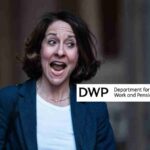On 30 July, the Campaign for Chris Williamson tweeted:
In a total subversion of due process, @DerbyChrisW has been referred to @UKLabour’s National Constitutional Committee for expulsion. We understand this to be unlawful and against Labour’s rules. Legal action against the party machine is underway and a crowdfunder is coming soon. pic.twitter.com/lINfEFhGaF
— Left Legal Fighting Fund (@Fighting_Fund) July 30, 2019
As this process continues, The Canary is taking a look at Williamson’s record as an MP. And in this piece, we remember his firm opposition to Western regime-change efforts abroad.
The Venezuelan coup attempt
More than six months have passed since Venezuelan opposition leader Juan Guaidó declared himself ‘interim president’ of Venezuela, with support from the US, its allies, and much of the media. The ongoing coup attempt has so far failed to overthrow the country’s democratically elected president Nicolás Maduro. But the US government continues to support the opposition in Venezuela and has recently imposed new sanctions. As prominent economists estimated in April, US sanctions helped to kill 40,000 Venezuelans between 2017 and 2018 alone.
On 14 February, I spoke to one of the few Western politicians to oppose the regime-change effort, Derby North MP Chris Williamson. He had previously attended an event on 7 February of the Venezuela Solidarity Campaign (VSC) to protest the decision of the Bank of England not to hand over gold worth $1.2bn that belongs to the Venezuelan government.
Amid current attempts to expel Williamson permanently from the Labour Party, it’s important to remember his principled stand against regime change abroad and against the mainstream media cheerleading such efforts. And his words below illustrate this honourable position.
Williamson’s anti-coup position
Chris Williamson MP: Well, I believe in self-determination which is also a matter of international law. And I think the difficulties that Venezuela is currently experiencing need to be resolved by Venezuelan people, not by external interference from imperialist powers like the United States, supported by countries like the United Kingdom and Spain.
And I was frankly astonished that Spain felt it’s appropriate to lend their support to Donald Trump when they were responsible for indulging in extreme violence against the Catalan people when they had the temerity to hold a referendum calling for independence from Spain. It seems that, in a democracy, it doesn’t really apply in their own country. And of course, not only did they mete out most of the violence against peaceful people in [Catalonia], they imprisoned their leaders and put them on trial. I mean, you know, this hasn’t happened in Venezuela – even though Venezuela’s got many problems, and there have been excesses on both sides. But at the end of the day, Juan Guaidó is still walking the streets free to make his case as it were…
I support self-determination of peoples and do not feel it’s appropriate for outside counties to intervene and interfere.
How can ordinary people support a peaceful resolution in Venezuela?
CW: What we support – for us in the United Kingdom, and elsewhere around the world, and in the United States and other countries, particularly those that have come out in support of Juan Guaidó – is to demonstrate that our governments are not doing that in our name. And I think international solidarity is so important that what I will be doing, and what the public can do, is with pressure on their own government; with pressure on, for example, in this country the Bank of England to release those gold reserves which belong to the Venezuelan people, belong to… the duly-elected government of Venezuela; and try… – from a grassroots level, using civil society organisations, trade unions and so on – to argue that self-determination for Venezuelan people is something that we should all subscribe to, and that this external intervention is completely unacceptable, and as I’ve already said, not being done in our name by our government…
I’ve tried to raise it on the floor of the House of Commons. So I’m in a privileged position to be able to sort of take it up to the heart of government in terms of making the case. But I think it’s so important… for the public, through their efforts in terms of attending the demonstration outside the Bank of England, writing to their MP, raising awareness, raising consciousness in civil society about what’s happening in Venezuela, to try and inform themselves about the reality on the ground because we’re only getting a very one-sided view from the media, sadly.
I have no difficulty with the media highlighting what they perceive to be the shortcomings of the Maduro government. That’s what the media’s there for. That’s fine. I’m not asking for them to be propaganda tools of Venezuela; but I do think it’s also important that they give the other side of the story. And because the mainstream media isn’t doing so, I think it’s important that… we do everything we can to try and inform people about the reality on the ground, and direct them to the… alternative news sites, people like… Max Blumenthal and others; American journalists and various others who are doing some excellent work, Greg Palast, for example, on the ground in Venezuela, who have been reporting on the reality of what’s happening right now, but also getting some historical context to how Venezuelans arrived at the situation that they have today.
Featured image via Mohamed Elmaazi















